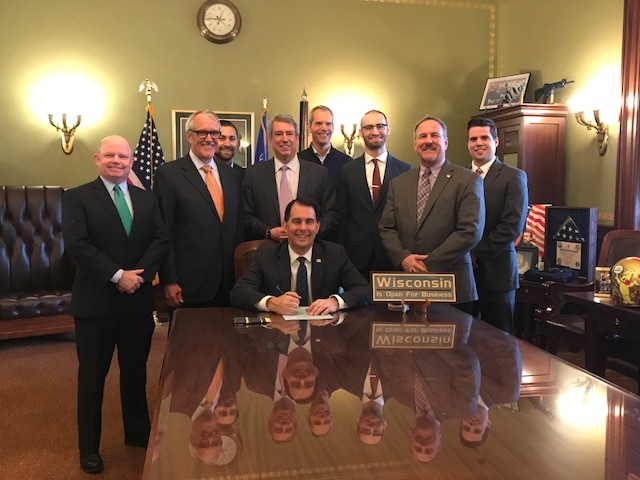New Glarus Brewing Lauds New Alcohol Law – Lobbied for Bill That is Now Law
Gov. Tony Evers signs sweeping overhaul of Wisconsin alcohol industry
MADISON – Gov. Tony Evers on Wednesday signed into law a massive overhaul of Wisconsin's alcohol industry, following years of negotiation and nearly a decade of infighting over what industry professionals said were confusing and unclear state laws governing beer, wine and spirits sales.
The measure passed the Senate in a bipartisan 21-11 vote last month, and the Assembly signed off on the Senate's vote with a bipartisan 88-10 vote.
"Across the country, Wisconsin is best known not only for our world-champion dairy but also our world-class breweries, wineries and distilleries that employ thousands of workers statewide and play a significant role in our statewide economy," Evers said in a statement. "Ensuring that our state’s regulations and policies are modernized and updated to meet this ever-evolving industry remains a priority for the safety of consumers, producers and Wisconsin as a whole."
The law clarifies a host of alcohol regulations in the state, touching everything from who can invest in new alcohol businesses, to winery operations, to when bars close during the Republican National Convention next summer. Alcohol producers will be allowed to sell their products without a tap room or production facility on site, and winemakers can now stay open past 9 p.m. into the early morning hours, similar to most bars.
The measure creates a new division within the state Department of Revenue to oversee the alcohol industry. It also creates a new statewide bartending license, increases the driving while under the influence surcharge and funding for the Safe Ride program, and implements a variety of regulations on electronic vaping devices.
The bill fundamentally alters Wisconsin's complicated system governing the making, distribution and sales of alcoholic beverages, known as the three-tier system. The system dates back to the 1930s and was intended to prevent monopolies on the sale of beer, wine and spirits by separating businesses involved in alcohol production, wholesale and retail sales.
The three-tier system can both limit the businesses of brewers, distributors and retailers and provide them with lucrative opportunities, so proposed changes to the law have often provoked intense legislative battles. Critics of the system said its rules were outdated and often arcane, hampering new and growing aspects of the state's alcohol industry.
Supporters have praised the plan as a rare and historic compromise. It has received broad support from Kwik Trip, New Glarus Brewing Co. and other business groups in the alcohol industry, along with organizations representing law enforcement, hotels and restaurants.
But the changes haven't sat well with owners of barns converted into wedding venues — better known as wedding barns — who have blasted what they fear would be an “extermination bill” for their businesses.
Under the new law, wedding barns and other private event venues planning to serve liquor will be required to get a new type of license to do so. The license, a “no sale event venue permit,” will allow those renting the barn to bring in their own alcohol but will limit wedding venue owners to rent or lease the property on no more than six days per year and one day per month. The requirement will not apply to campgrounds or parking lots where events occur, including tailgates.
Although some wedding barn owners already have a liquor license, others have said the law's requirement is too expensive for their business model.
Elements of the law are set to take effect on a varied timeline. Some are effective the day after publication, while most others will take effect the first day of the fifth month beginning after the bill’s publication. The wedding barn provisions are set to take effect in two years.
Jessie Opoien can be reached at jessie.opoien@jrn.com.

